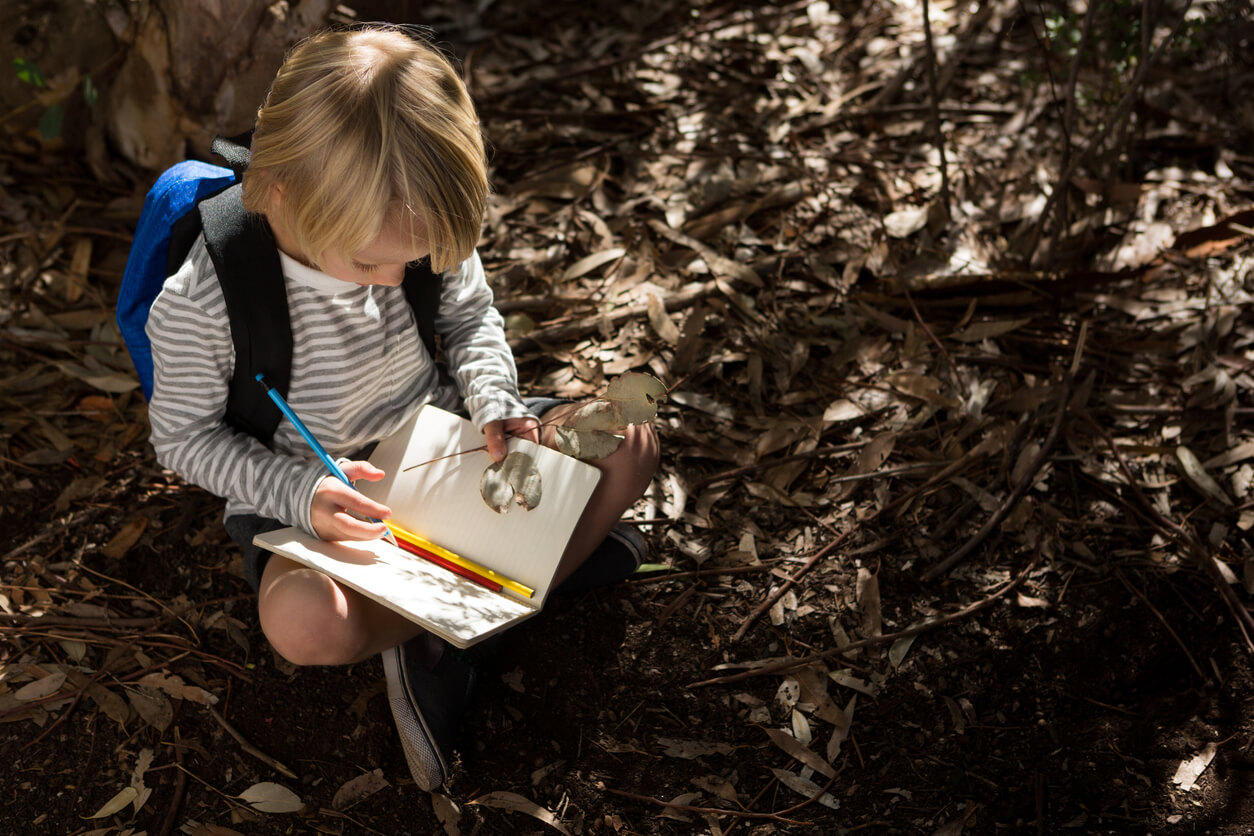Worldschooling or Learning By Traveling


Reviewed and approved by the pediatrician Marcela Alejandra Caffulli
Worldschooling, or learning by traveling, is a new form of education that replaces traditional schooling. It has become trendy nowadays. Therefore, we’ll explain what it consists of, the ways to carry it out, and many other interesting facts that will provide you with all the information you need. Take note!
What is Worldschooling and what does it consist of?
Worldschooling, or learning by traveling, is defined as an educational experience that takes the place of a classroom. The origin of the practice stems from two familiar educational methodologies that some parents have chosen for their children:
- Homeschooling: Families choose to impart the educational knowledge of school in the home.
- Unschooling: This refers to education without school. In this regard, families choose to assume their own means for the education of their children.
However, unlike these two traditional practices, this new experience doesn’t require a traditional teaching space. Rather, education can occur in other places, in the company of family and friends, or in solitude.
In any case, as supported by a study by Dr. Gina Riley published by the International Journal of Education in 2017, the main objective is for children to learn based on getting to know different cultures and, through them, acquire knowledge about the world.
Discover: Children Are Happier While on Vacation

Ways to carry out Worldschooling
There are different ways to put this family educational method into practice:
- Traditional Worldschooling: This consists of traveling with children throughout the year or seasonally.
- Wordschooling without traveling: Multiculturalism is incorporated by other means, such as exchange programs or hosting people from different countries at home.
The benefits of Worldschooling, or learning by traveling
Despite the debates that this teaching method may generate, some experts argue that the benefits achieved from empirical practice, through observation and theory, should be taken into account to endorse it.
An American study published in 2017 based on the experiences of several parents exposed how they encouraged children to write their experiences in a notebook. Among the advantages they found with the method of learning by traveling, the following stand out:
- Practical learning: Teaching is carried out through lived experiences.
- Emotional learning: Social and emotional skills, such as trust, gratitude, tolerance, solidarity, or empathy, are reinforced in tune with the feelings and emotions of others.
- Contact with nature: By traveling, the learning of biology, geography, mathematics, and language is deepened.
- Fostering curiosity and logic: The child’s interest is awakened by discovering new things and stepping out of their comfort zone.
- Knowledge of a multicultural world: The knowledge of different cultures, traditions, and languages allows children to have a more open mind and a more realistic and global vision of the world.
Is Worldschooling a legal practice?
In Australia, Italy, and the United States, Worldschooling is growing in popularity, although there are other countries where legislation doesn’t recognize it. For this reason, many families in these countries choose to make the trip before the age when their children are obliged to enter school or take advantage of vacation time.
Read also: At What Age Can a Baby Travel by Plane?

The main challenges when you choose Worldschooling
Currently, the main challenges faced by families who decide to embark on this practice are related to factors such as the time, the cost, and the fear of traveling and exploring. For this reason, parents who undertake this adventure often have remote jobs.
On the other hand, another challenge to be explored when undertaking this educational methodology is the temptation to force learning during the trip. In this regard, the objective is for the lessons to arise naturally.
However, many still question this educational approach. To this end, the book by Dr. Gina Riley, Unschooling: Exploring Learning Beyond the Classroom (2020) is the precursor of this new trend by assuming that “all schools can improve and continue to grow”. So, what do you think of this vision and would you dare to put it into practice? Let us know in the comments!
Worldschooling, or learning by traveling, is a new form of education that replaces traditional schooling. It has become trendy nowadays. Therefore, we’ll explain what it consists of, the ways to carry it out, and many other interesting facts that will provide you with all the information you need. Take note!
What is Worldschooling and what does it consist of?
Worldschooling, or learning by traveling, is defined as an educational experience that takes the place of a classroom. The origin of the practice stems from two familiar educational methodologies that some parents have chosen for their children:
- Homeschooling: Families choose to impart the educational knowledge of school in the home.
- Unschooling: This refers to education without school. In this regard, families choose to assume their own means for the education of their children.
However, unlike these two traditional practices, this new experience doesn’t require a traditional teaching space. Rather, education can occur in other places, in the company of family and friends, or in solitude.
In any case, as supported by a study by Dr. Gina Riley published by the International Journal of Education in 2017, the main objective is for children to learn based on getting to know different cultures and, through them, acquire knowledge about the world.
Discover: Children Are Happier While on Vacation

Ways to carry out Worldschooling
There are different ways to put this family educational method into practice:
- Traditional Worldschooling: This consists of traveling with children throughout the year or seasonally.
- Wordschooling without traveling: Multiculturalism is incorporated by other means, such as exchange programs or hosting people from different countries at home.
The benefits of Worldschooling, or learning by traveling
Despite the debates that this teaching method may generate, some experts argue that the benefits achieved from empirical practice, through observation and theory, should be taken into account to endorse it.
An American study published in 2017 based on the experiences of several parents exposed how they encouraged children to write their experiences in a notebook. Among the advantages they found with the method of learning by traveling, the following stand out:
- Practical learning: Teaching is carried out through lived experiences.
- Emotional learning: Social and emotional skills, such as trust, gratitude, tolerance, solidarity, or empathy, are reinforced in tune with the feelings and emotions of others.
- Contact with nature: By traveling, the learning of biology, geography, mathematics, and language is deepened.
- Fostering curiosity and logic: The child’s interest is awakened by discovering new things and stepping out of their comfort zone.
- Knowledge of a multicultural world: The knowledge of different cultures, traditions, and languages allows children to have a more open mind and a more realistic and global vision of the world.
Is Worldschooling a legal practice?
In Australia, Italy, and the United States, Worldschooling is growing in popularity, although there are other countries where legislation doesn’t recognize it. For this reason, many families in these countries choose to make the trip before the age when their children are obliged to enter school or take advantage of vacation time.
Read also: At What Age Can a Baby Travel by Plane?

The main challenges when you choose Worldschooling
Currently, the main challenges faced by families who decide to embark on this practice are related to factors such as the time, the cost, and the fear of traveling and exploring. For this reason, parents who undertake this adventure often have remote jobs.
On the other hand, another challenge to be explored when undertaking this educational methodology is the temptation to force learning during the trip. In this regard, the objective is for the lessons to arise naturally.
However, many still question this educational approach. To this end, the book by Dr. Gina Riley, Unschooling: Exploring Learning Beyond the Classroom (2020) is the precursor of this new trend by assuming that “all schools can improve and continue to grow”. So, what do you think of this vision and would you dare to put it into practice? Let us know in the comments!
All cited sources were thoroughly reviewed by our team to ensure their quality, reliability, currency, and validity. The bibliography of this article was considered reliable and of academic or scientific accuracy.
- Germann Molz, J. (2017). Learning to feel global: Exploring the emotional geographies of worldschooling. Emotion, Space and Society, 23, 16–25. https://doi.org/10.1016/j.emospa.2017.02.001
- Riley, G. (2017). Worldschooling: Homeschooling away from home. International Journal of Education, 9(1), 186. https://doi.org/10.5296/ije.v9i1.10798
- Riley, G. (2020). Unschooling: Exploring learning beyond the classroom (1st ed.). Springer Nature.
This text is provided for informational purposes only and does not replace consultation with a professional. If in doubt, consult your specialist.








